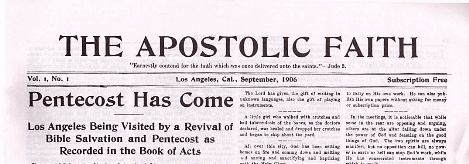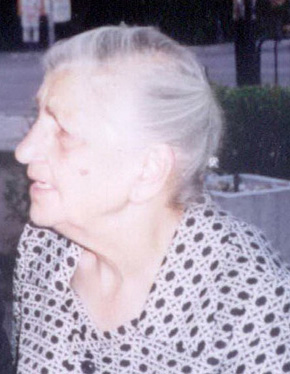PENTECOST has COME

Countdown to Pentecost

7 Redemptive Names of God in Psalm 23
Psalm 23
- The Lord is my shepherd (Jehovah-Raha) ; I shall not want (Jehovah-Jireh).
- He maketh me to lie down in green pastures (Jehovah-Shalom): he leadeth me beside the still waters (Jehovah-Raha).
- He restoreth my soul (Jehovah-Rapha): he leadeth me in the paths of righteousness for his name’s sake (Jehovah-Tsidkenu).
- Yea, though I walk through the valley of the shadow of death, I will fear no evil (Jehovah-Nissi) : for thou art with me (Jehovah Shammah) ; thy rod and thy staff they comfort me (Jehovah Raha).
- Thou preparest a table before me in the presence of mine enemies (Jehovah Nissi): thou anointest my head with oil (Jehovah-Rapha); my cup runneth over (Jehovah-Jireh).
- Surely goodness and mercy shall follow me all the days of my life: and I will dwell in the house of the Lord for ever.
Jehovah-Shalom – the Lord is our Peace
Jehovah-Raha – the Lord is my Shepherd
Jehovah-Jireh – the Lord will provide
Jehovah-Nissi – the Lord our Banner or Victor
Jehovah-Tsidkenu – the Lord our Righteousness
Jehovah-Rapha – the Lord that healeth
Jehovah-Shammah – the Lord with us or is present
Alive, alive, alive forevermore!
“When I call to remembrance the unfeigned faith that is in thee, which dwelt first in thy grandmother Lois, and thy mother Eunice; and I am persuaded that in thee also.”
2 Timothy 1:5
My Grandma, Todorka Mindova, was one of the first Sunday school teachers in the Bulgarian Pentecostal Union. After successfully graduating from a training course in the city of Sliven led by Donka Kinareva and personally organized by Dr. Nicolas Nikolov, she was allowed to minister in the denomination. But for grandma, the faith was more than teaching or a sermon. It was life. Many Bulgarian Pentecostal ministers can testify to the effectiveness of her ministry. And for her constant fasting and thousands of answered prayers I could write a book.
But far more interesting for me as a child was the fact that being a Sunday school teacher, Grandma never tried to preach to me. In the hardest moments of life she would only confess these words, which I have remembered from my childhood: “We serve a living God.” More was not needed. For Grandma preached with her life. Read more
Still here, still preaching Jesus!
Over 30 years ago, when I was 16 I gave my life to the Lord and just two weeks later was called to the ministry. I will be 50 soon. Still here. Still preaching Jesus!
As I am turning 50, I’ve been praying for one more sign in Bulgaria. Still here, still preaching Jesus, but I want the Church of God in Bulgaria united like it was before.

Climbing Mount Everest AGAIN!

The above is from a book by Arnold Schwarzenegger in 2024. And something I wrote back in 2017:
To translate the Bible is like to climb upon top of Mount Everest. You put everything at stake. You spend yourself to the last. You forget the pain and fatigue. You leave behind the unimportant things. You carry only the most important ones. Every breath is for eternity. Every step is last. And so, all the way to the top! The price is unbearable, but the reward is extraordinary. Because there, from the top, you finally see things differently. And it is almost impossible to go back down. Even if you can, down now feels different. And one can only hope others too will climb this peak, to perceive and translate for the next. So, that they too can see. For this reason, our interlinear is by no means the last. It is only a seed, which will bear long lasting fruit. For the generations…

EVEN More Signs of the Last Days
Is it Possible to Know the End is Near?
Yes. In Matthew 24, after Jesus gave a sequence of events that would happen at the end of the age, He said, “when you see all these things, know that it is near—at the doors!” (Matthew 24:33)
Jesus Christ has given specific signs of the end times so we would be able to know when the end is near.
Sign 1: The Rise of Great Britain and America
Did you know that the Bible foretold that two powerful nations would rise in 1788? One nation would be the leader of a group of nations and become the greatest empire in history. The other nation would become the wealthiest and most powerful nation in history.
This prophecy about the last days was fulfilled right on time by Great Britain and the United States of America. To learn the amazing details about this prophecy, see lesson 2 of the Bible Prophecy Challenge.
Sign 2: An Explosion of Knowledge
The book of Daniel in the Bible contains many prophecies about the end times. After the angel Michael told Daniel the sequence of end-time events, he said:
“But you, Daniel, shut up the words, and seal the book, even to the time of the end. Many will run back and forth, and knowledge will be increased.” (Daniel 12:4)
This statement foretold that a short time before the end, there would be an increase in travel and knowledge. Has this been fulfilled? Just look around you.
Sign 3: The Jews Return to the Land of Israel
In 1916, during World War I, Great Britain and France made a secret treaty to divide the Middle East and create a special international zone in the area of modern Israel. With help from the British, the Arabs began a revolt, and soon after the allied forces invaded Palestine. These events opened the way for the Jews to return to the land of Israel.
Many Bible prophecies show that many of the Jews will be living in the land of Israel at the end of the age. In fact, the Bible even foretold that 1916 would be a major turning point for the Jewish people. To learn more, see lessons 2 and 7 of the Bible Prophecy Challenge.
Sign 4: The Rise of Germany
After World War II, most people were sure that Germany would never rise again. But those who understood end-time Bible prophecy confidently foretold that Germany would rise again to become the leading power in Europe and the world.
In lesson 1 of the Bible Prophecy Challenge you will find out what happened on October 4, 1982, and how a prophecy fulfilled on that day links Germany to end-time prophecies. You will also learn how Germany’s recent pledge to spend 100 billion euros to build up its army is fulfilling prophecies about the end-time.
Sign 5: The Decline of the USA and Northwestern Europe
Great Britain used to be the leading nation in the world. Now, especially after Brexit, Great Britain is struggling to find its place in the world.
In 2021 the world watched as America ran away from Afghanistan as the Taliban reversed decades of war in a few days.
The troubles in America and Great Britain, Canada and Australia, France and the rest of Northwestern Europe are obvious.
The Bible predicts many specific troubles these countries are experiencing now, and will experience in the next few years. Will America and the West recover from these trouble or will they collapse?
Sign 6: Skepticism and Disbelief
The Bible foretells that in the last days, many people will scoff at Bible prophecies:
in the last days mockers will come, walking after their own lusts, and saying, “Where is the promise of his arrival? For, from the day that the fathers fell asleep, all things continue as they were from the beginning of the creation.” (2 Peter 3:3-4)
In the past 150 years several billion people have learn at home and at school that there is no God and the Bible is a book of myths. Even some who claim to be Christians have no interest in end-time prophecy, because they don’t think anything important will happen any time soon. This lack of belief is one sign of the end times.
Sign 7: Widespread Selfishness
Here is another sign of the end times:
But know this, that in the last days, grievous times will come. For men will be lovers of self, lovers of money, boastful, arrogant, blasphemers, disobedient to parents, unthankful, unholy, without natural affection, unforgiving, slanderers, without self-control, fierce, not lovers of good, traitors, headstrong, conceited, lovers of pleasure rather than lovers of God; holding a form of godliness, but having denied its power. (1 Timothy 3:1-5)
Is this an accurate description of our age? You decide.
Sign 8: The Rise of a False Christianity
When Jesus taught His followers about the end times, the very first thing He said was:
Watch out so that no one misleads you. For many will come in My name, saying I am the Christ, and they will lead many astray. (Matthew 24:4-5)
Many people think Jesus was only warning about people who claim to be Christ. But Jesus was also warning of a more subtle danger. He said that there would be many who come in His name, in the name of Christianity, and who say that Jesus is the Christ.
The Bible foretells that at the end-time, a powerful, miracle-working prophet will deceive the world with his signs. What you may not realize, is that the Bible show that this prophet will claim to be the legitimate leader of Christianity!
Sign 9: Wars, Famine, Disease, and Death
Among the sign that Jesus foretold would come before the end are wars, news of war, famine, disease, and death (Matthew 24:6-7). There are wars, famines, and disease now, but the troubles that Jesus predicted will come after a false Christianity begins to rise. In the final stage of these troubles, one-quarter of humanity will die (Revelation 6:8). The end will not come until after one-quarter of the world’s population dies.
Sign 10: The Persecution of Real Christians
Jesus told His followers:
At that time they will hand you over to oppression, and will kill you. And you will be hated by all the nations because of My name. (Matthew 24:9)
This persecution will not come on all who claim to be Christians. It will be directed at those who actually follow and teach what Jesus taught. But those who endure these trials will be counted worthy to escape the Great Tribulation.
Sign 11: The True Gospel is Preached
Jesus said that shortly before the end of the age, the gospel of the Kingdom would be preached everywhere in the world:
And this good news of the Kingdom will be proclaimed in the whole world for a testimony to all the nations, and then the end will come. (Matthew 24:14)
There are still many who have not heard Christ’s true gospel yet. This sign has not been completed yet.
Sign 12: A Muslim Attack on Europe
In the book of Daniel we find a prophecy about a war between the King of the South and the King of the North. This war marks the beginning of “the time of the end” (Daniel 11:40).
The King of the North, coming out of Europe, will respond to this attack with an invasion of North Africa and the Middle East. He will conquer Egypt, invade many lands, and many of the countries of North Africa and the Middle East will submit to him.
Sign 13: Sacrifices Stop in Jerusalem
Just 45 days after the war in North Africa the Middle East begins, the King of the North will stop the daily sacrifices in Jerusalem and set up an image in the holy place called the Abomination of Desolation.
That means that the Jews must begin performing daily sacrifices in Jerusalem before this prophecy can be fulfilled. However, one prophecy indicates that the daily sacrifices may only begin a short time before they are stopped (Hosea 5:6-7).
Sign 14: A Group of People are Taken Away
The Bible says that there is a specific group of people who will be protected during the tribulation. Who are they? Where will they be taken?
Sign 15: The Great Tribulation
Jesus described the Great Tribulation in this way:
then there will be great tribulation, such as has not been from the beginning of the world until now, no, nor ever will be. And if those days were not shortened, no flesh would have been saved. But for the sake of the chosen ones, those days will be shortened. (Matthew 24:21-22)
This will be a time of trouble for many, but the Bible actually predicts that it will be a time of great prosperity for some. During the Great Tribulation, the False Prophet will force everyone to receive the Mark of the Beast.
Sign 16: The Day of the Lord
What is the “Day of the Lord”? How is it different from the Great Tribulation? The Bible actually says that the day of the Lord does not begin until after the Great Tribulation is finished.
Sign 17: The Return of Christ
Finally, at the end of the Day of the Lord, Jesus Christ will appear in the sky. Everyone will see Him, and everyone will hear the sound of a loud trumpet. At that time, Jesus will be proclaimed as the King of the earth. But the world will not immediately accept their king.
Sign 18: Armageddon
Shortly after Christ appears in the sky, the nations of the world will form a plan to overthrow Him (Psalms 2). Huge armies will gather at Mount Megiddo (Armageddon) in Northern Israel, and from there they will march toward Jerusalem to fight Christ.
Sign 19: The Kingdom of God is Established on Earth
This may surprise you, but the Bible clearly foretells that God will set up His Kingdom on Earth—not just heaven.
God Wants You to Study End-Time Prophecy
Think about this: Should you believe what some random guy put on the internet?
Absolutely not!
You shouldn’t believe anything you just read, unless you can prove it in the Bible. Yes. God actually wants you to read the Bible!
The Bible says:
“Do not despise prophecies. Test all things. Hold on to the good.” (1 Thessalonians 5:20-21)
Are you going to do what the Bible says?
Are you going to learn what the Bible really says about the end times, before it’s too late?
If not, you will be deceived by the false Christianity that Jesus said would dominate the world at the end (2 Thessalonians 2:9-12; Revelation 13:14).
MORE Signs of the Last Days
Many things likely come to mind when you think about the end times. You probably envision fire coming from the heavens, chaos erupting globally and life as we know it coming to an end. While these are common associations, several signs will occur before the last days that we should pay attention to. We understand that these are signs of the end times because Jesus tells us so. Here are the final 11 signs of the end of the world.
Signs of Deception
One of the major signs of the end times is deception. The Bible warns us of false prophets who will say they are the Messiah. They will also claim they have answers for all the problems of the world. Jesus gives us very specific warnings that speak to our generation now, referenced in Matthew 24. In this passage, Jesus mentions the false prophets who will use wonders to deceive us. These false prophets can include people in government, elected officials and other leaders. We must guard ourselves and be on the lookout for these deceivers. We are also told in the Bible these aren’t ordinary men. In the last days, many will cry out for leaders, and they will turn to these false prophets who claim to have the answers.
Hunger and Famine
Another significant sign of the end times is famine and hunger. These are some of the biggest issues plaguing our world right now, and many people are trying to figure out if this is a sign we are entering the end times. According to key statistics, 11 percent of the world’s population is hungry. That means 805 million people are undernourished daily. While we are blessed with a large and fertile planet, millions of people are going hungry each day.
Natural Disasters
When natural disasters take place, many people are concerned that they are pointing to the end times. Some of these recent events and disasters include record-breaking heatwaves not only in America and in Europe. People have also cited devastating earthquakes and wildfires that have taken out whole communities. This has come against the backdrop of political tension, which has only left people more fearful.
The Spread of New Diseases
Revelation 6:5-8 warns that our world will be rocked by new diseases and subsequent plagues in the end times. Luke 21:11 also cautions that there will be pestilences in various places and fearful events in the last days. Many people have wondered if the COVID-19 pandemic is one of the new diseases the Bible speaks of. Some believe that the pestilences that Jesus referenced will be fulfilled in the first three and a half years of the Tribulation period that comes after the rapture.
War
We are told in scripture that there will be disputes among nations. Scripture warns us that a big sign of Jesus’ ultimate return is discord and war among groups of people. This is another sign many people are wondering about is occurring right now. The Book of Revelation references a period called the Tribulation. During this period, we are told there will be a great deal of war. This war will appear to have no end. The Bible also tells us that as we enter the end times, including national battles, conflicts at the border and race wars.
Rumors of War
In addition to listing war as a sign of the end times, Jesus also mentions rumors of war. Many people think that Jesus is simply warning us of war in the last days, but Jesus is really instructing us to not allow rumors of war to concern or alarm us because “the end is not yet.” Jesus was doing the same thing when He spoke of false Christs in Matthew 24:5. Jesus tells us in Matthew 24:8 that “all these are the beginning of the birth pains.”
Signs in the Heavens
God references numerous heavenly signs that point to the end times. The 6th Seal of Revelation goes into great detail about the signs in the heavens which haven’t been witnesses since creation. One of the biggest passages that reference these signs is Revelation 6:12-14. This passage says, “When he opened the sixth seal, I looked, and behold, there was a great earthquake, and the sun became black as sackcloth, the full moon became like blood, and the stars of the sky fell to the earth as the fig tree sheds its winter fruit when shaken by a gale. The sky vanished like a scroll that is being rolled up, and every mountain and island was removed from its place.” While many believe these are signs of despair, they are indeed signs of hope.
Persecution
One of the signs of the end times many people don’t talk about is persecution. During the final days, there will be a rise in the persecution of Christians. We will also see hatred and betrayal increase. In Matthew 24, right before Jesus references the rise of false prophets, He warns the disciples, “Then you will be arrested, persecuted and killed. You will be hated all over the world because you are my followers. And many will turn away from Me and betray and hate each other.” This is why we must be disciplined in our prayer lives.
Lawlessness
Jesus prophesied in the final days that there would be lawlessness. Many people think the lawlessness associated with the end times is as simple as people disobeying the 10 Commandments. It goes much deeper than this. Remember, Jesus was a big proponent of God’s law. Not only was His life governed by the law, but He also taught people to obey the law. In Second Thessalonians 2:8-9, Paul uses the word lawless to reference the most powerful false religious teacher in the last days. During Jesus’ earthly ministry, Jesus warns us that God will reject those who practice lawlessness.
Jesus
The most significant sign of the end times is Jesus. In Acts 1, the risen Lord spoke his parting instructions to his followers. They asked the Lord, “Is it at this time You are restoring the kingdom to Israel?” While the disciples didn’t fully understand Jesus’ full purpose, they were filled with the hope that He would act victoriously and decisively on their behalf. Jesus’ response serves as a reminder that while we will not be privy to the exact day and moment of Jesus’ ultimate return, we will not be oblivious to the signs that the day is close.
While the world appears to get darker, and we face more spiritual warfare than ever before, we have real hope through Jesus Christ. He defeated death and remained victorious. We can have the same victory when we put our total faith in our Lord and Savior. When we trust in the words of Jesus and the prophets, we can be better prepared for what’s to come.
SIGNS of the LAST DAYS: Spirit poured out on all flesh (Joel 2:28)

SIGNS of the LAST DAYS: Peace taken from the earth









